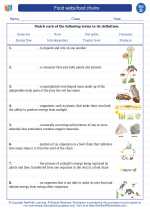Microorganisms
Microorganisms, also known as microbes, are tiny living organisms that are too small to be seen with the naked eye. They include bacteria, viruses, fungi, and protozoa. Microorganisms can be found in almost every environment on Earth, including soil, water, air, and even inside the human body.
Types of Microorganisms:
- Bacteria: Single-celled organisms that can be found in various shapes and sizes. They can be beneficial, neutral, or harmful to other living organisms.
- Viruses: Submicroscopic infectious agents that can only replicate inside the cells of living organisms. They cause a wide range of diseases in humans, animals, and plants.
- Fungi: Eukaryotic organisms, including yeasts, molds, and mushrooms, that obtain nutrients by decomposing organic matter or by living as parasites on other organisms.
- Protozoa: Single-celled eukaryotic organisms that can be found in various aquatic and terrestrial environments. They play important roles in nutrient cycling and food chains.
Importance of Microorganisms:
Microorganisms play crucial roles in various ecological processes, including nutrient cycling, decomposition, and symbiotic relationships. They also have significant impacts on human health, agriculture, and industry. For example, some microorganisms are used to produce antibiotics, enzymes, and food products, while others can cause diseases in humans, animals, and plants.
Study Guide:
- Define microorganisms and provide examples of different types.
- Explain the importance of microorganisms in ecological processes.
- Discuss the impacts of microorganisms on human health, agriculture, and industry.
- Describe the structure and characteristics of bacteria, viruses, fungi, and protozoa.
- Compare and contrast the beneficial and harmful roles of microorganisms.
- Identify specific examples of beneficial and harmful microorganisms.
Understanding microorganisms is important for studying biology, ecology, and public health. It is also essential for appreciating the diversity of life on Earth and the interconnectedness of all living organisms.
.◂Science Worksheets and Study Guides Fourth Grade. Food webs/food chains
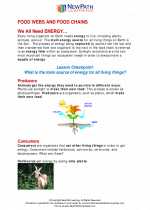
 Activity Lesson
Activity Lesson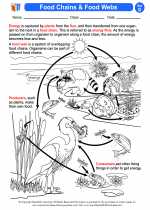
 Worksheet/Answer key
Worksheet/Answer key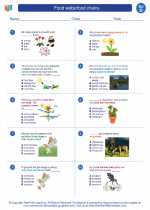
 Worksheet/Answer key
Worksheet/Answer key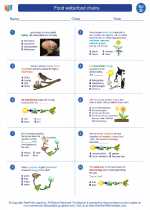
 Worksheet/Answer key
Worksheet/Answer key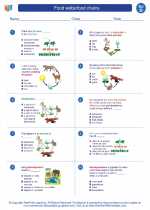
 Worksheet/Answer key
Worksheet/Answer key
 Vocabulary/Answer key
Vocabulary/Answer key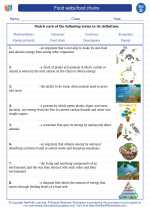
 Vocabulary/Answer key
Vocabulary/Answer key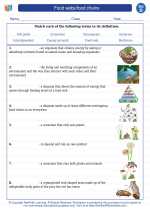
 Vocabulary/Answer key
Vocabulary/Answer key